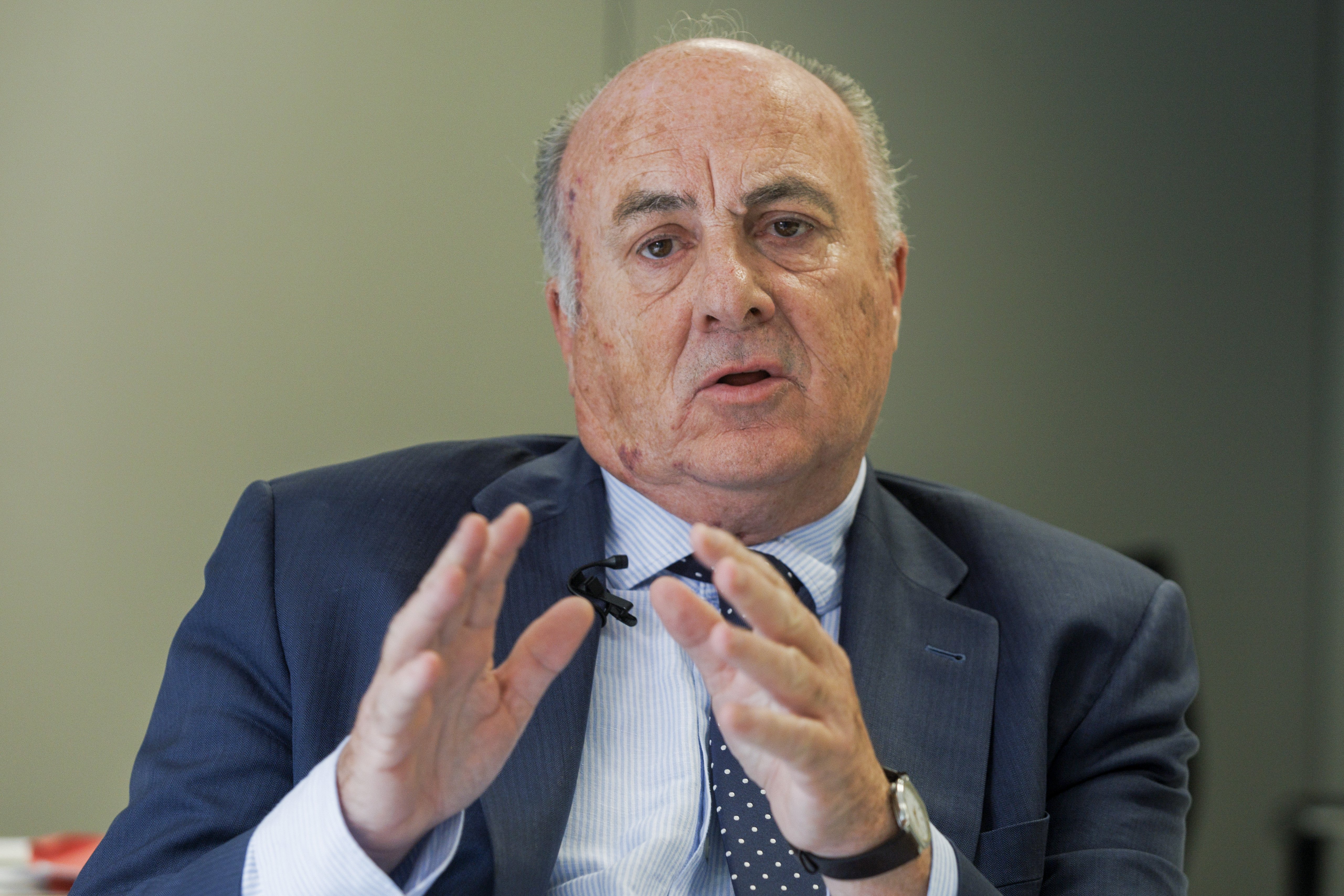Spanish judge Manuel García-Castellón has opened a new front in his open confrontation with the Socialist (PSOE)-led government and the Catalan pro-independence parties. Specifically, he has entered into controversy with the public prosecutors. This Wednesday the National Audience judge asked the prosecutor's office at the Supreme Court to provide his court with the report drawn up by Supreme Court prosecutor Fidel Cadena, and signed by the majority of his colleagues at the high court, which maintains that there is a basis for investigating Catalan president-in-exile Carles Puigdemont for a crime of terrorism in the Democràtic Tsunami case. Why does he want the report? "To send it to the Swiss authorities", according to a ruling released this Wednesday, to which ElNacional.cat has had access.
The problem, as far as the prosecution service is concerned, is that this is not the final report that the prosecutor's office will submit to the Supreme Court judges, but a submission made by one side - the anti-amnesty side - in a controversial debate within the prosecution service which still continues. Thus, the judge's request for this report is seen as unusual and brings him into conflict with the prosecution service hierarchy, which does not subscribe to the judge's thesis of terrorism in the case, as National Audience prosecutor Miguel Ángel Carballo also ruled out, in a report which did not find evidence incriminating either Puigdemont or the majority of those investigated, such as the Catalan Republican Left (ERC) general secretary, Marta Rovira.
Evidence
In fact, this Wednesday has seen the emergence of the controversial submission drafted by Supreme Court prosecutor Fidel Cadena which argues that in the definition of crimes of terrorism, legally amended in 2015, there is no need for a hierarchical and hidden organization, and that the objective of the pro-independence protest platform Tsunami Democràtic with its demonstrations in 2019 was to subvert the constitutional order and public peace. Thus, the evidence it cites against Puigdemont consists of a generic conversation with one of those investigated and a meeting in Geneva, at which it is asserted he gave the go-ahead to activate this anonymous platform to call large protests in response to the Supreme Court's sentencing of 12 Catalan independence process leaders, in October 2019. Carles Puigdemont described the prosecutors' arguments as "delusional".
No Swiss collaboration
In addition, this Wednesday, judge García-Castellón also communicated his response to the Swiss authorities for refusing him international collaboration in locating exiled ERC politician Marta Rovira in Switzerland. The judge argues that they cannot deny the request because international treaties prohibit it in terrorism crimes if political motives are alleged. However, García-Castellón is ignoring that the Swiss authorities already told him in 2020, and again last December, that the facts being investigated in the Tsunami case are not compatible with a crime of terrorism, and at the most, show indications of an offence of serious disorder, and furthermore, they are in the field of political conflict. Nevertheless, the judge also demands more investigation of Rovira.
The National Audience judge has also, this Wednesday, issued a resolution in which he opens a separate part of the case to investigate who leaked the Swiss response to the Letters Rogatory request for international judicial assistance, made by García-Castellón last November.
Terrorism
The lieutenant prosecutor of the Supreme Court, María de los Ángeles Sánchez Conde, number two in the leadership of Spain's prosecution service, is preparing the final report that will be submitted to the Supreme Court judges, after opposing criteria were maintained by two court prosecutors, with the majority of members (11 prosecutors out of 15 ) overturning the proposed report from their colleague Álvaro Redondo, who argued that there is not enough evidence on which to base the crime of terrorism, let alone attribute it to Puigdemont. This case caused a crisis in the public prosecutor's office because, in addition, an earlier draft was made public in which Redondo had opted for the opposite course - to investigate the Catalan president - a fact criticized by Spain's chief prosecutor, Álvaro García Ortiz, who faces direct conflict from the conservative wing of the prosecution service, in a dispute which has nothing to do with legal arguments.
Redondo's change of heart, according to prosecution sources, was based on subsequent verification he made on one of the major demonstrations in the Tsunami case, the protest at Barcelona-El Prat airport on October 14th, 2019. After his first draft, the prosecutor concluded that the air controllers of El Prat were not "kidnapped", as originally stated, but rather suffered from movement difficulties like the rest of the people, a situation which occurred in the context of a massive demonstration. The final report of the prosecutors' office is not binding on the Supreme Court, headed by Manuel Marchena, who will have the last word on Puigdemont. For now.

